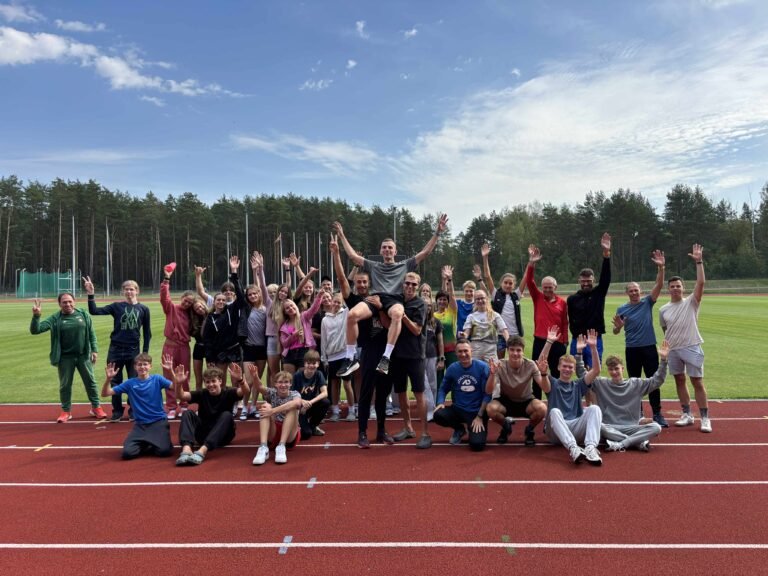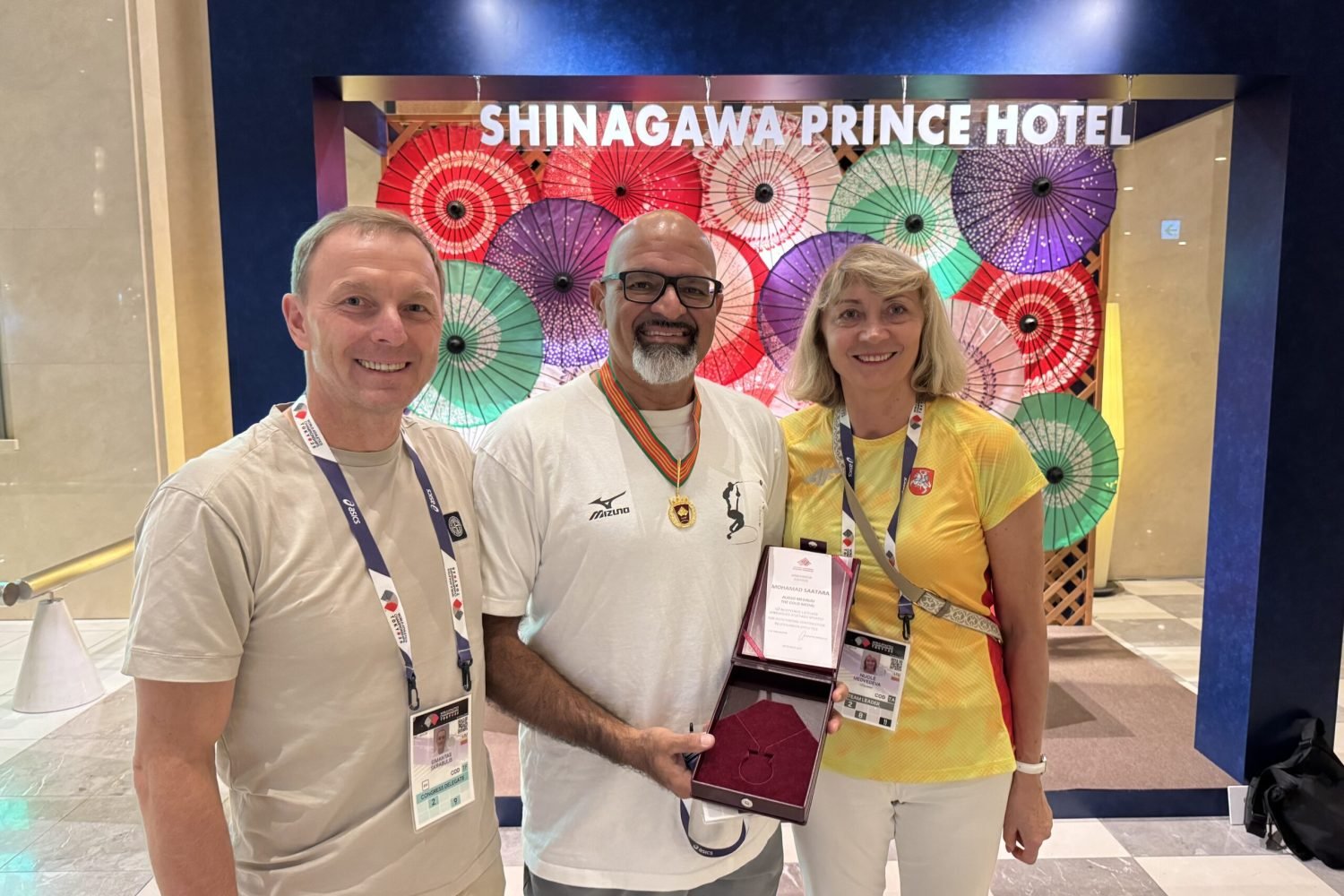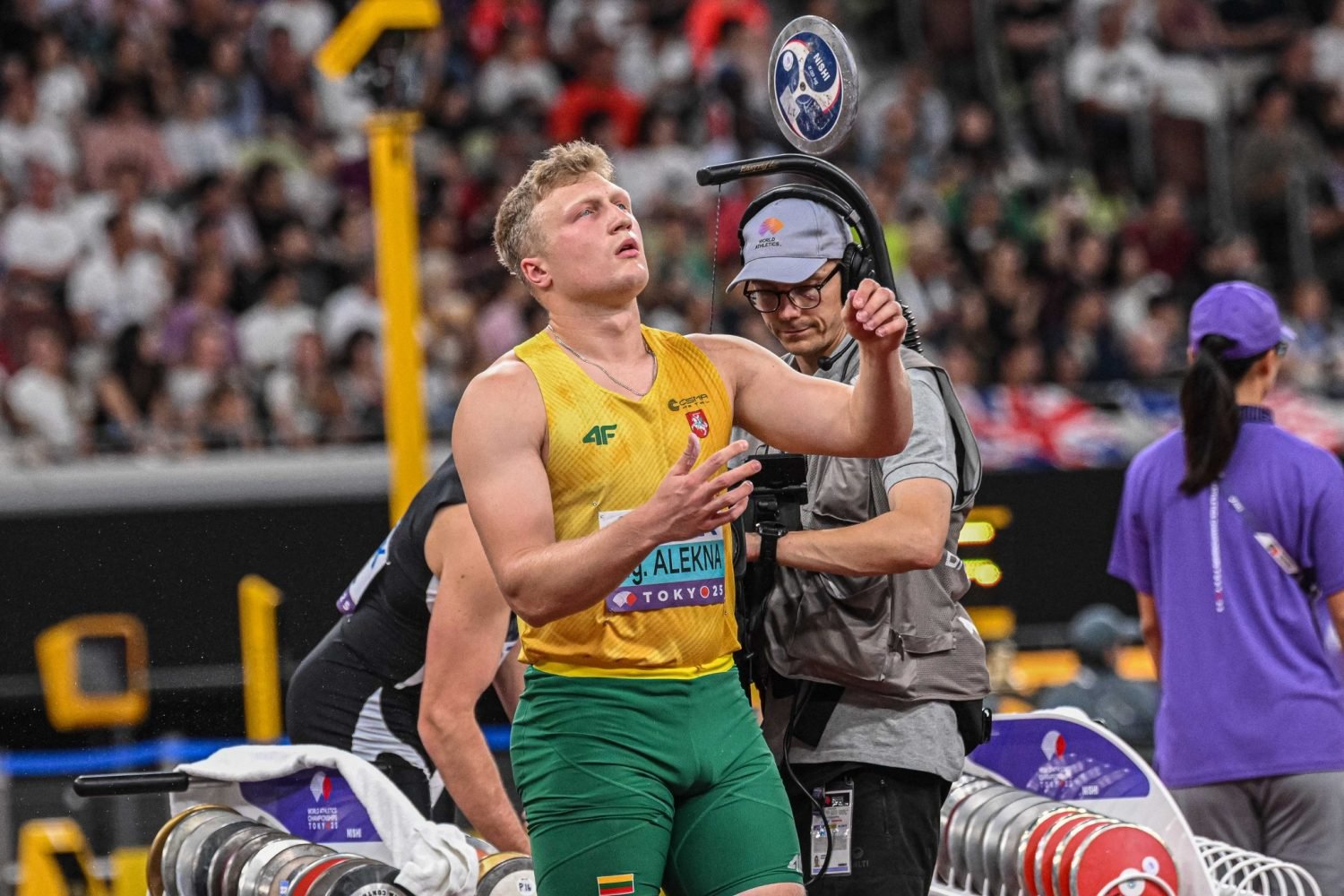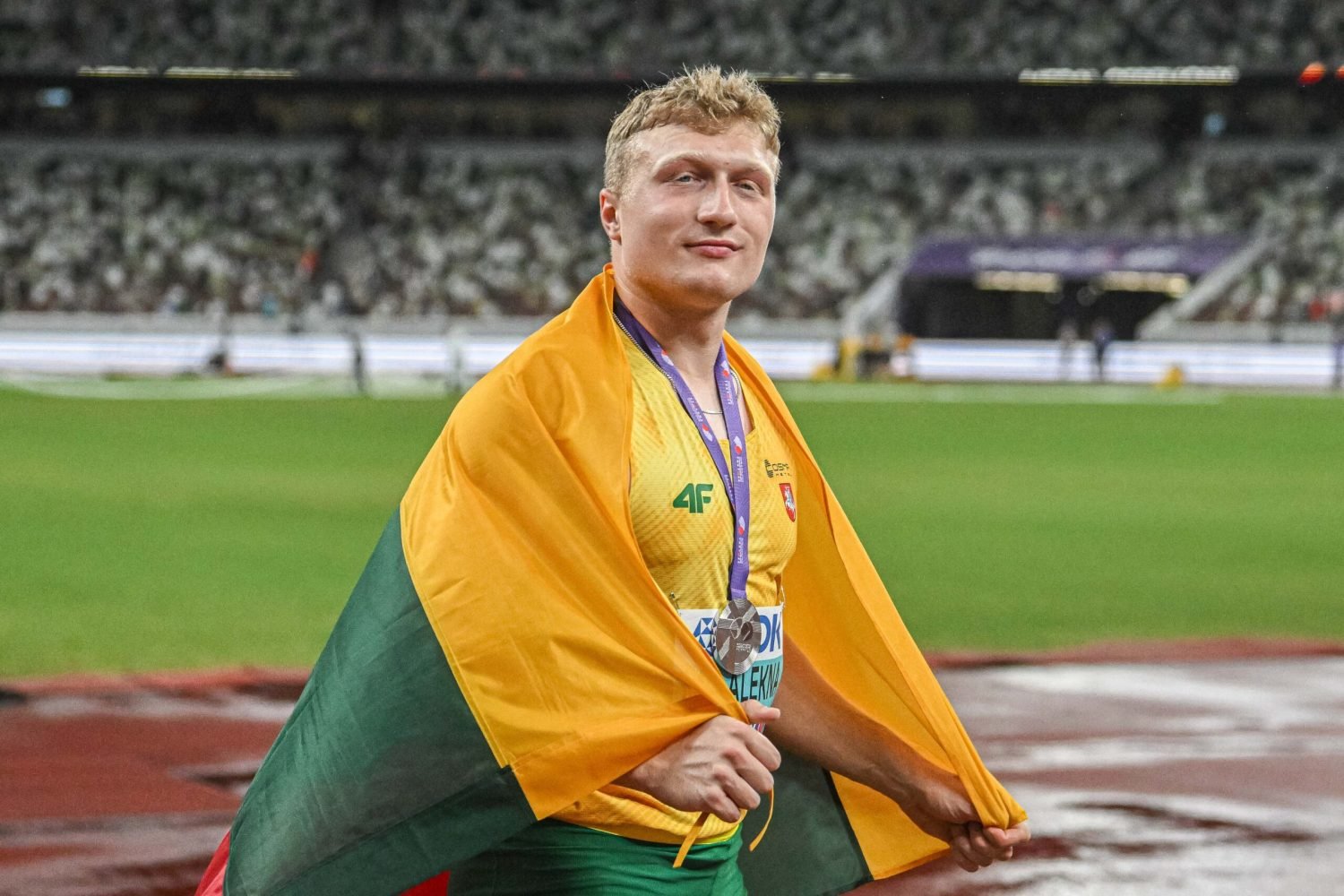On August 25-29, a camp for young athletes was held in Druskininkai, dedicated to medium and long-distance runners and representatives of sport walking. The camp is part of the selection and training program for individuals with exceptional talents.
The camp was attended by 20 athletes selected by the Lithuanian Athletics Federation (LLAF) and 8 coaches working with the strongest Lithuanian middle and long distance running and walking athletes. The head and curator of the program is Evaldas Kandratavičius, and Jonas Žakaitis, Arnas Gabrėnas and others also contribute to the implementation. Lithuanian record holder and best middle-distance runner Simas Bertašius visited Druskininkai and shared his experience.
During the camp, the young talents underwent tests of physical capacity, lactate and sprint running. In addition, physiotherapy examinations and consultations were carried out, as well as athletes participated in lectures and discussions on nutrition, training peculiarities and physical training tests.
The coaches had the opportunity to hear lectures on physiology, the application of lactate tests in practice, the importance and specifics of athletic training according to the tests performed, and the basics of general physical training. There were many discussions about coaching and everyday challenges in the work of a coach.
“From the tests performed, we noticed that athletes have very different profiles and training, so each test performed allowed us to understand the strengths and weaknesses of individual athletes. The coaches have received systematized test results and will be able to prepare the training program and monitor the progress of the athletes more purposefully. The survey conducted after the camp showed that the lectures and tests performed at the camp were necessary and useful for the coaches. This camp inspired the athletes with motivation to continue improving and striving for high excellence results, allowed them to get to know their body better and understand where they need to improve,” said A. Gabrėnas, one of the program implementers.
Speaking about the results of the camp, A. Gabrėnas emphasized the most obvious gaps: “The physical tests carried out showed that most athletes lack work in the gym. While this shouldn’t be their main workout routine, targeted strength training can further boost their potential for high results. Lactate and sprint running tests have shown that athletes are very diverse – some need a lot of work on endurance training, others are already somewhat limited by their speed characteristics.”
“The tests carried out showed certain hidden moments. Athletes and coaches have been told that medium and long-distance runners are used to training the motor – heart and respiratory system. Transmission is often forgotten – the muscles and tendons of the legs are not so well developed. The athletes themselves were interested to see the results of the tests. There is such a moment in the training process that exercises are given and educational work is not done. Now we could engage in educational activities and tell good and bad things,” commented E. Kandratavičius.
“The fact that the coach comes and is interested shows that he is not closed off and determined to improve. Perhaps something will be unacceptable, but in the course of the debate ideas will arise that can be applied. Coach Juozapas Garalevičius teaches me that if I ever meet a specialist who knows everything, I need to run away from that specialist as far as possible. Such a person really doesn’t know anything (laughs),” said multiple Lithuanian champion S. Bertašius.
Athletes born in 2006-2012 from all over Lithuania participated in the camp. “The camp was very useful, interesting and fun for everyone who participated in it. After it, we really feel more motivation to improve from both athletes and coaches. We plan to maintain close contact with the coaches who participated in the camp, share the progress of training with each other and help each other in case of problems. The athletes, of course, wanted a longer camp with more sports, but most of them are currently just starting to do sports after the summer holidays, so the next camp could be a little longer, with more workload for athletes and a more expanded program of theoretical and practical activities for coaches,” added A. Gabrėnas.
S. Bertašius, the record holder of the Lithuanian 1000 m, 1500 m, 1500 m, 1 mile and 3000 m races, who visited the Young Talent Camp spoke about his experience and career achievements: “The appreciation that I was invited and seen as an example. While preparing, I thought that thanks to my coaches, both the first Eugenijus Petrokas and the current J. Garalevičius – I had become a textbook example of how endurance athletes should be trained and prepared from a young age. The results should be planned later, when the sporting maturity comes, and not with short-sighted thinking about the championships of age groups. We wanted to convey all this to the youth and coaches.”
E. Kandratavičius, the curator of the Talent ID Programme appointed by the LLF, was pleased not only with the results of the camp, but also with his colleagues who helped to achieve them: “Excellent and competent team of J. Žakaitis. They have mastered new technologies and methodologies and can analyze and analyze data. I was surprised that they communicate with the coaches of the best athletes in the world, using the results of laboratories. Their professionalism and scientific knowledge were really surprising, so there is no doubt about their competence.”
The program manager expanded on the goals and selection criteria: “The goal of the program is to give athletes attention and help to achieve results from a young age and young age. We selected the most talented athletes based on the results of the competition and the recommendations of the coaches. Quite a few gathered, but there could have been more. We hope that those who are skeptical will change their minds in the future and there will be more of those athletes. It is easier for the children to sell the idea, but the coaches also made excellent use of the camp. They know a lot, but they were able to listen and gather interesting information for themselves.”
Track and field athlete S. Bertašius suggests inviting not only the most talented athletes and coaches to camps or tests in the future: “We should take a wider geography. It is possible to analyze where there are not many of those endurance athletes, where coaches work, but they know less about endurance training, and those gaps can be filled. I would think that those coaches who are actively working, but do not have something bright at the moment, should be invited, because it would help them improve. Since I myself do not come from a big city, I understand that there are really strong children there. We should pay attention to smaller towns, because there may certainly be achievements there in the future.”
“Statistics show that Lithuanians (endurance athletes – aut. past.) is 10-15 years behind other European countries in terms of the number of talented people. However, we have those talented children and that material exists. The question is, how do we train and educate them? What can be done to prevent the number from decreasing and talents from disappearing? At the camp, the athletes wanted their test results to be compared with each other. This shows that they are motivated and want to be competitive.
I have no doubt that this camp has added to them that elixir of motivation and desire for at least half a year or a year. A dangerous moment is when a young athlete trains while he is successful, but when the results stop growing, hesitations arise. We believe that such a community effect encourages sports and striving for heights. The results will come, hopefully, when needed,” E. Kandratavičius shared his thoughts.
The next step in the program is testing shooters, jumpers, and sprinters. Specialists from the LSU Sports Science Mobile Laboratory, the LLAF partner, will contribute to the testing. Testing is scheduled to start in mid-September.
The Talent ID programme is financed by the state budget, which is administered by the National Sports Agency under the Ministry of Education, Science and Sports of the Republic of Lithuania. More information about the LLAF program for the development of young talented athletes can be found here.
lengvoji.lt
Photo by LLAF




